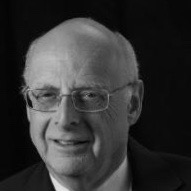Originally posted on Dec 22, 2011
This blog entry is part of a series of articles and commentaries prepared by Steven Windmueller regarding the 2012 elections and the Jewish vote.
Across the political spectrum candidates are increasingly relying on various PAC’s (Political Action Committees), 501 C 4 advocacy groups, and even nonprofit institutions to promote and advance their campaign themes, and by inference lending support to a specific candidate or political party. During this current campaign season numerous organizations have engaged candidates or endorsed policy initiatives identified with a particular politician. Over the past several election cycles this pattern of aligning political campaigns with the “third-sector” (nonprofit and advocacy organizations) has seen a sharp and significant rise in popularity. One of the key outcomes of such organizing strategies affords candidates the benefits of free publicity and wider exposure without direct costs to the campaign itself.
Several examples come to mind. The Emergency Committee for Israel, a group backed by William Kristol and other prominent conservatives, recently posted ads in the New York Times and elsewhere critical of the Obama administration and its policies toward Israel. The introduction of such ads served to aid the President’s opponents in challenging his credentials on Israel. Similarly, the Zionist Organization of America’s recent annual dinner (November 20th) represented an occasion to honor Glenn Beck but more significantly provided an opportunity to host members of the Republican Congressional delegation, including Presidential-hopeful Congresswoman Michele Bachmann. This setting permitted critics of the current administration to offer political messages on American policy in the Middle East.
In turn, policy groups and religious bodies often engage politicians as a way to advance their political agendas and social values. Hosting speakers or promoting ad campaigns that feature political elites provide visibility for these nonprofits while serving as a window of opportunity for candidates to be identified with particular causes. In an effort to reduce ”incendiary rhetoric and without turning support for Israel into a partisan issue”, American Friends of Peace Now has launched a project entitled “Responsibility over Rhetoric” designed to “help candidates talk constructively about Israel and Middle East peace”. Whether from the Jewish political left or right, groups are increasingly seeking ways to convey policy information and to garner candidates to embrace their messages and ideas.
Historically, nonprofit institutions, fearing the possibility of being investigated by the IRS, totally avoided hosting political candidates or in doing so made certain to include the political participation of all major candidates and parties. More recently, there appears to be a lessening of concern about being identified as “more partisan”. In turn, various 501 C 3 organizations have established “front groups” or have invested their resources to establish C 4 public policy bodies. In the case of the later, IRS regulations permit such structures greater political exposure and broader advocacy activities.
In recent elections both the RJC (Republican Jewish Coalition) and the NJDC (National Jewish Democratic Council) have played central roles in advancing their respective political agendas and have been setting the tone and direction for this type of new form of Jewish political activism.
Increasingly, Jewish advocacy organizations, emulating the behavior of other institutions within this country, are tracking and commenting on statements made by candidates and elected officials (as for example, J Street and the ZOA, each representing different political perspectives on the case for Israel), monitoring Congressional voting records of high profile House and Senate members, and polling Jewish constituencies and sharing that data with both candidates and the general press. While some of these tactics have been in play for a significant period of time, the increased intensity of these activities have pushed Jewish organizations deeper into the political fray than in the past. Over the years, organizational leaders and board members of C 3 charitable institutions were frequently prohibited from engaging in partisan political work while holding office; today, one finds fewer constraints on organizational leaders. Carrying this notion further, over the past number of years, just as high profile Christian clergy have endorsed candidates or elected officials, some prominent rabbinic leaders are doing the same.
Both political parties and many of the current candidates running for the public office will continue to employ these “third parties” or take advantage of such opportunities to allow these organizations or their representatives to endorse their campaigns and embrace their political ideas. Increasingly, public officials and public policy institutions are finding common ground in advancing their shared interests.
Steven Windmueller
Rabbi Alfred Gottschalk Emeritus Professor
HUC-JIR
Los Angeles campus
swindmueller@huc.edu
See:
Did you enjoy this article?
You'll love our roundtable.
Editor's Picks



What Ever Happened to the LA Times?

Who Are the Jews On Joe Biden’s Cabinet?


No Labels: The Group Fighting for the Political Center
Latest Articles

The Power of the Passover Seder to Unite Jews

Dr. Nicole Saphier Reflects on Motherhood and Jewish Advocacy

Israel’s David Moment

Make Felt Seder Plate Elements













 More news and opinions than at a Shabbat dinner, right in your inbox.
More news and opinions than at a Shabbat dinner, right in your inbox.